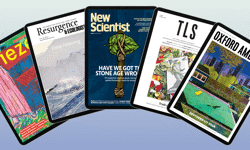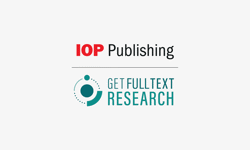
The ongoing pandemic impacts every facet of society, including the world of research and scholarly communications, and as Covid-19 continues to develop in waves, publishers and their customers have adjusted to the challenges of hybrid and remote working environments. Limitations on global travel have had a damaging effect on many universities, the majority of whom have responded by pivoting to virtual teaching and learning delivery. At the same time, collaborative digital tools to support research and teaching are experiencing greater uptake, and the publishing sector is once again demonstrating its resilience as well as greater appetite for innovation.
Fundamentally, research plays a critical role in meeting the challenges of our time, including amongst other things, the climate crisis, healthier lives, access to education for all, and of course, the development of vaccines to fight the pandemic itself. Publishers are vital in supporting the rapid dissemination of trusted, rigorously validated research, and the increasing uptake of pre-prints, particularly in medical domains, signals a broadening of approach whereby journal publication is complemented by the sharing of early-stage work back upstream in the workflow.
This in turn provides opportunities for publishers to support authors in the adoption of open research workflows, including the organisation and dissemination of research data sets, methodologies and other assets to help improve the transparency and reproducibility of research itself. For publishers whose communities continue to coalesce around journal publications, the time is right to co-create new, healthier, and diverse approaches to boost transparency and trust in editorial and peer review processes.
Open Access (OA) publication will continue to accelerate rapidly in 2022 and we, like many in the publishing sector, embrace OA as one of the components that ultimately will drive the global impact of research. Looking forward, it is vital that research communities have a choice of ways to publish OA, and that we play our part in the development of more equitable and accessible options rather than having a ‘one size fits all’ model, that will inevitably disadvantage some.
The open research agenda improves accessibility to knowledge, at a time when societal change is most needed and the academic community is increasingly tasked to generate “impact” on society. With clear synergies between these agendas, it is increasingly important for collaboration across the research ecosystem to build on shared goals.
On a day-to-day level, publishers are investing heavily in technologies – including AI in relatively nascent form – to provide tools that support healthy, increasingly open research practices, whilst also signalling commitment to meaningful change through, for example, the UN’s Sustainable Development Goals Publisher Compact, endorsed by over 100 publishers. With research remaining so central to societal progress, and publishers increasingly collaborating with other stakeholders in the ecosystem, the outlook for 2022 is positive.
It is vital that research communities have a choice of ways to publish OA.
This article was first published in the Publishing Partners Guide (PPG) 2022, which is published and distributed by InPublishing. You can register to receive InPublishing magazine here and view the digital edition of the PPG here.










